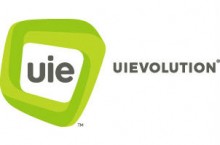I say it all the time…
There are no more hacks and shortcuts in SEO.
…except for this one  .
.
We’ve been using this hack to rank in Google in less than a week, sometimes even in the same day.
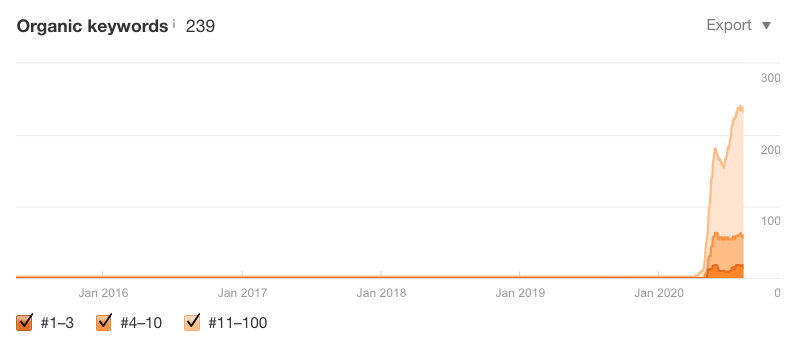
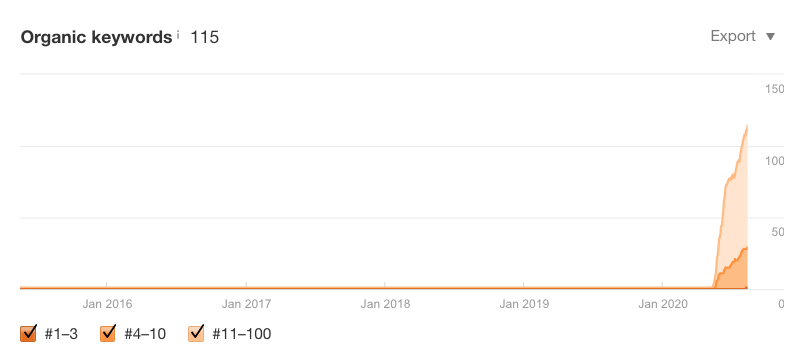
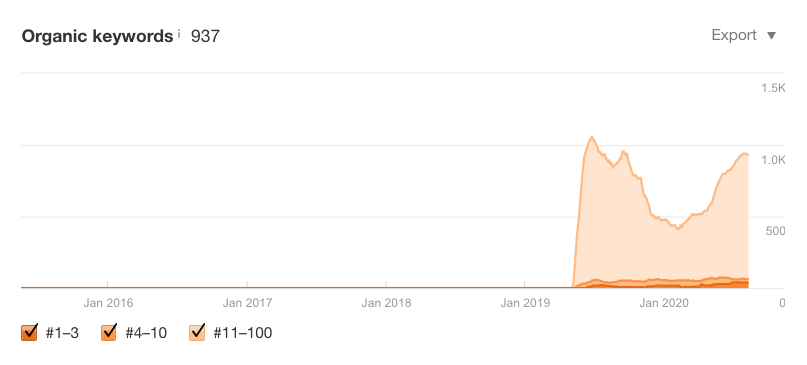
This post will outline the hack and how you can replicate it for your business.
This post is a summary of the video. To get all the insights, watch the video!
The last of the SEO hacks
You’ve most likely heard me say multiple times that there are no hacks or shortcuts when it comes to SEO. While I’m not going to say I was wrong, there is one hack that has the power to immediately explode organic traffic volumes.
A few months ago, I was doing competitive research to generate content topics for our training website, The Blueprint Training.
I came across a blog post about the differences between Moz vs. Ahrefs vs. SEMush.
The post was ranking 1st for a ton of hyper relevant keywords, all with the perfect intent that would funnel traffic directly into our business.
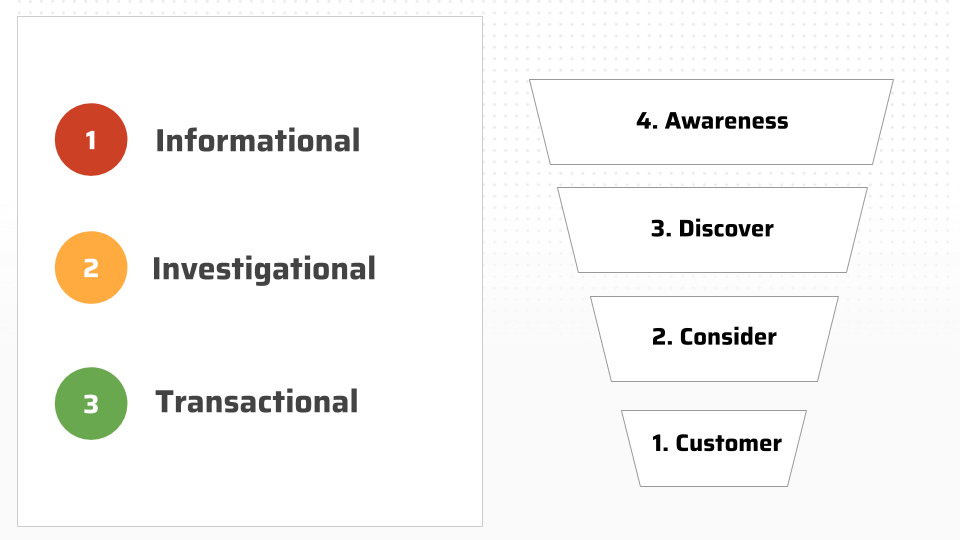
Our keyword intent diagram
The process of researching, writing, promoting and waiting for the post to rank felt like an eternity.
So I decided to email to website owner and offer to buy the post from him. Here’s a screenshot of the pitch:
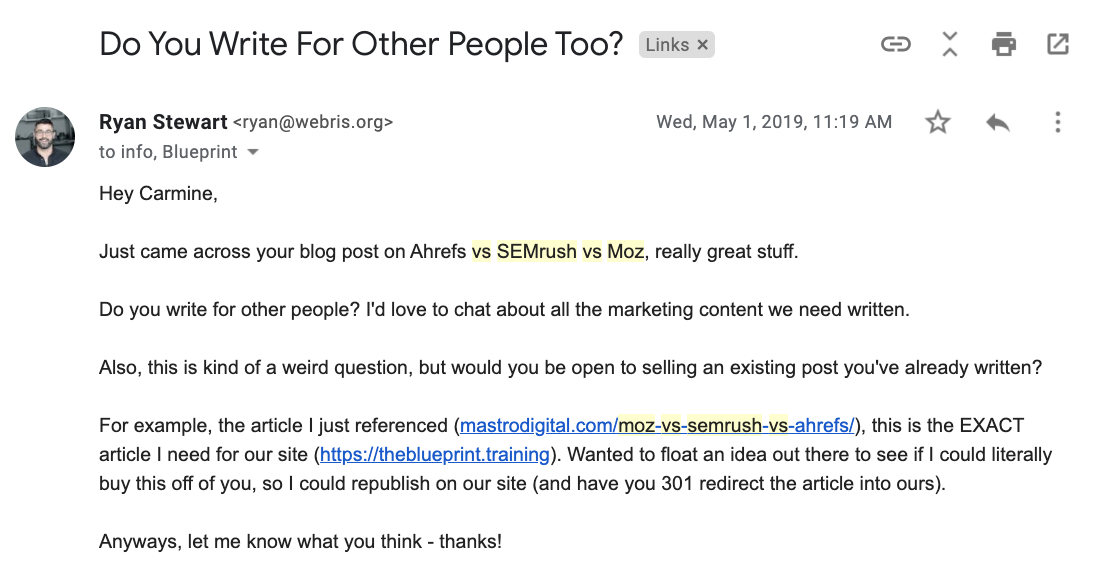
I point-blank pitched the idea of redirecting the page into my website. He accepted the offer, sold the post, and redirected with a 301.
We saw a traffic spike immediately. After eight months, the post continues to rank and drive valuable traffic back to our website. By saving myself the effort of not writing, linking, and optimizing the blog post, the sale paid off in considerable ROI.
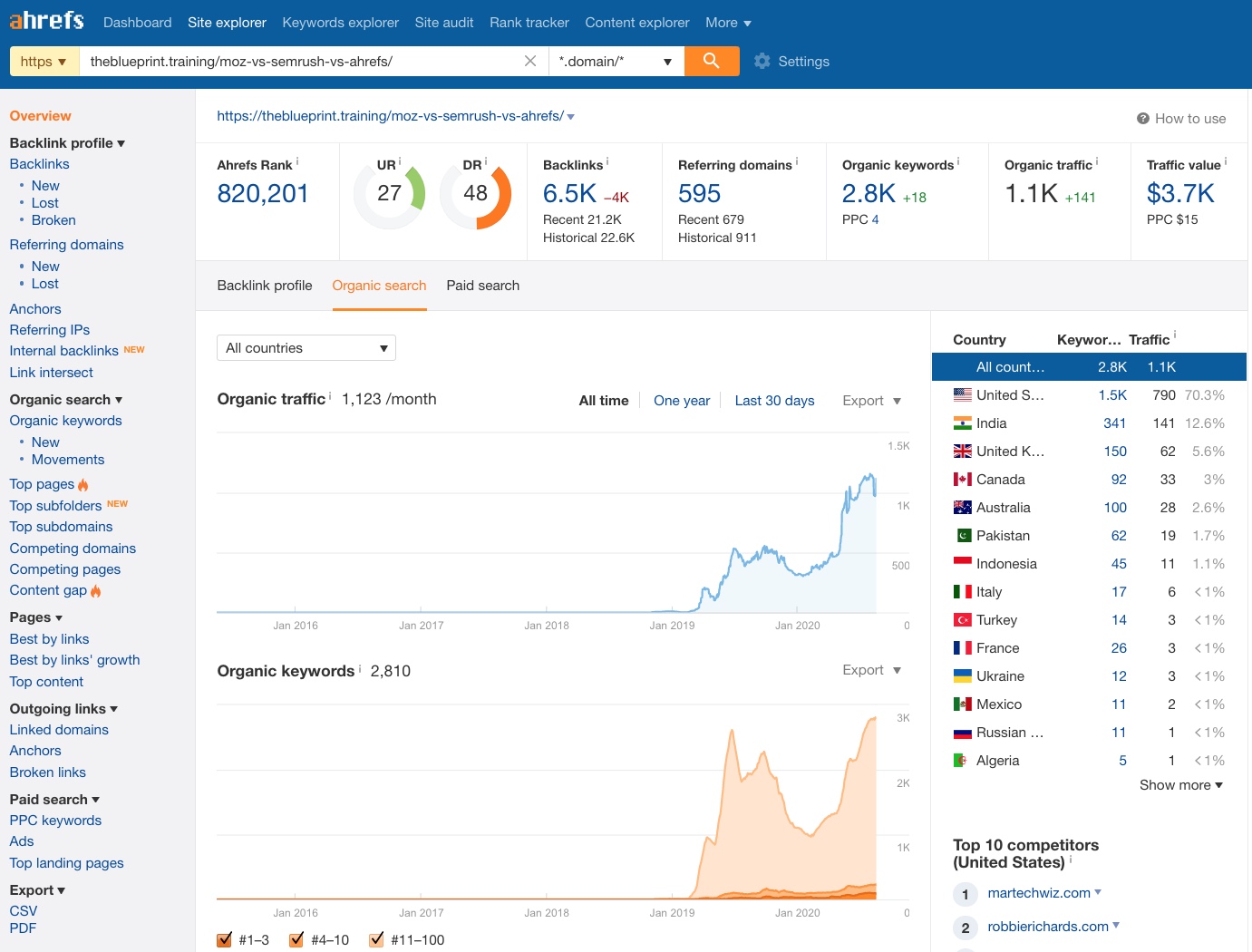
The 301 redirect strategy is a way for your website to leverage relevant content and build impactful equity to drive more ROI. Let’s talk about replicating this for your website.
What is a 301 Redirect?
Redirects send search engines and users to a different URL than what was originally requested. Serving a 301 redirect signifies to search engines that the website location has changed and all the content can be found on the new URL. When forwarding one URL to another, a 301 redirect is a permanent redirect that passes 100% link equity and site authority.

301 redirects are the best way to redirect traffic because you won’t lose hard-earned equity that’s essential for organic search.
With more link equity, you secure a higher ranking power within search engine results. In doing so, your website is more likely to be clicked on by users searching for your products or services.
Hacking redirects for instant traffic
While HTML links pass credibility and authority from one site to another, they’re also impermanent and can be removed at any time. Meaning, you could lose crucial endorsements and trust signals to search engines by simply losing one link.
On the other hand, 301 redirects pass 100% permanent link equity.
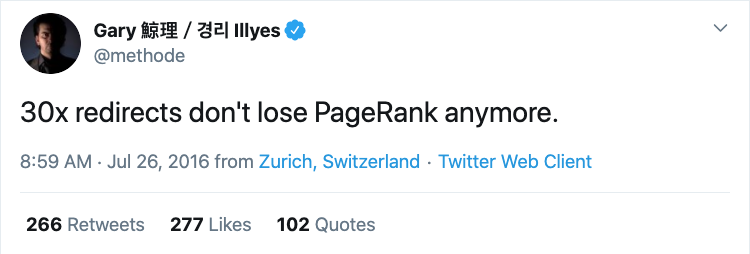
We’re able to implement 301 redirects through the backend of a website to tell search engines that all of the site equity — links, engagement, keyword rankings, etc.— have been transferred.
In my opinion, there is no higher SEO trust signal to represent ownership of the website’s past and future optimizations.

However, before I dive into the hack strategy, it’s essential to note that this isn’t meant for beginners. It’s not easy to execute. Why? Not every website will be willing to sell you their content or website. It can also be very expensive.
If you’re ready to start investing in an impactful SEO tactic, you have two options to successfully implement my 301 redirect hack.
Option 1: Purchase the entire domain
You can purchase the domain and redirect everything to your website on a one-to-one level. You will need to put time into mapping out the content pages and figure out what would make the most sense for the user experience. Once you have the destinations from their website to your own mapped out, you can set up the 301 redirects.
Consider purchasing domains from:
- Auctions: Domcap, Spamzilla, and Hammerhead all sell domains; however, you will need to execute extensive research to verify the domain is relevant and clean.
- Struggling businesses: Acquire competitors and strong businesses that are for sale through outreach or companies like Flippa.
From a business perspective, buying domains is an ideal strategy when acquiring a company. Whether you’re buying another business for their process or products, don’t let the website die with the sale.
Often undervalued, the website is a valuable asset that can drive a long-lasting impact.
Purchasing the entire domain is a power move. If it fits in your SEO budget and strategy, do it—it’s more effective than link-building and is the fastest way to transfer equity and build trust with Google.
Option 2: Buy individual pages
Just like I did with the Moz vs. Ahrefs vs. SEMrush post, you can purchase individual web pages and 301 redirects them back to your website. However, this is far more complicated and will need a stronger pitch to convince another website to sell their content. You also have fewer opportunities and will need to conduct extensive research to ensure you’re buying a page that will return value.
To execute buying webpages, consider the following tactics:
- Conduct keyword research: Manually search for relevant keywords and send pitches to those that may be interested in selling.
- Reach out to bloggers: Instead of focusing on businesses, bloggers are more apt to receive a pitch because they’re content developers and advertise space on their websites.
When reaching out to purchase a page, make sure you include evidence and credentials to prove that you’re a trustworthy person. Because this is an out-of-the-ordinary pitch, many people may require an additional explanation of what a 301 redirect is and how it benefits both parties.
But does it work?
Yes, it works. It transfers equity almost immediately and drives real results for businesses looking to increase organic search rankings and overall conversions.
Brian Dean (of Backlinko) used this tactic to acquire a high traffic SEO blog with the sole purpose of redirecting for traffic and equity. I reached out to Brian for a comment, he replied with this:
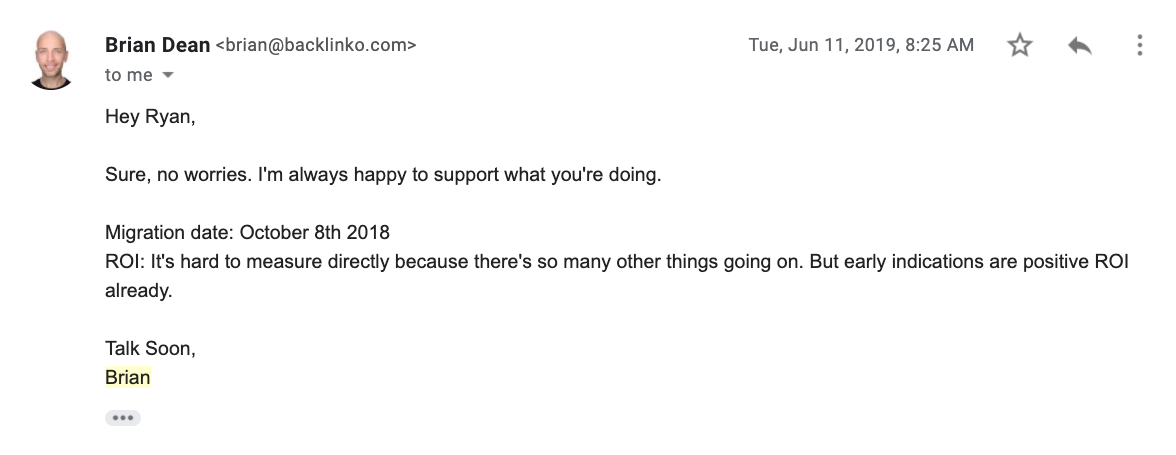
In addition to purchase the Moz vs Ahrefs post, we’ve executed this strategy across our own portfolio of websites to better position content.
For example, a well-ranked SEO proposal blog post was initially on the WEBRIS Agency website, but was better suited for The Blueprint Training’s audience. With my 301 redirect strategy, we saw the rankings pass over in one day and have since experienced higher conversions.
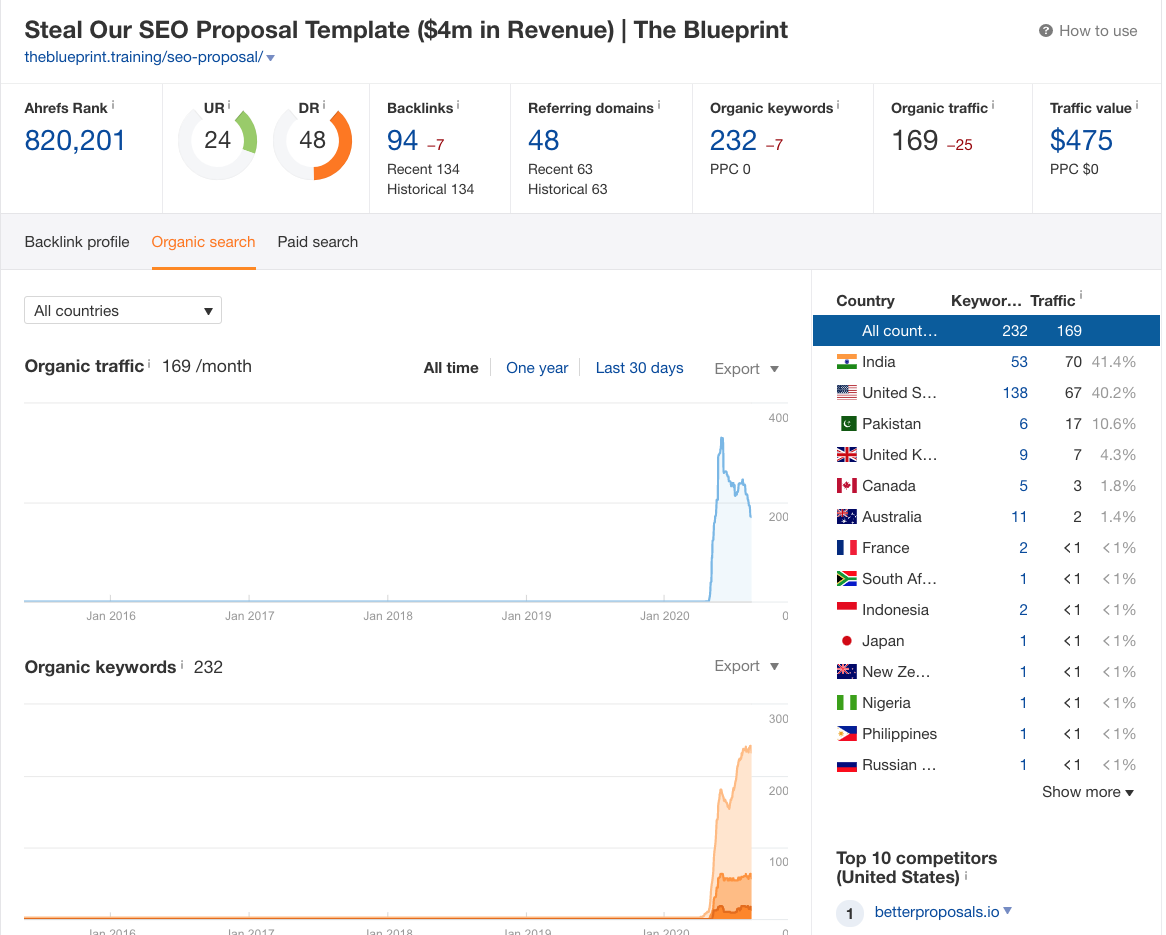
We’ve also sold pages on our website that were no longer a good fit for our target audience. Years back, we wrote a detailed guide on “how to do SEO for attorneys”. The post ended up ranking really well for competitive keywords like “legal” and “lawyer SEO”.
While these are lucrative keywords, our agency doesn’t work with attorneys. Therefore, it wasn’t holding much business value for us – we were just collecting traffic.
So I reached out to a friend (who only works with attorneys) and offered to sell him the post and redirect it.
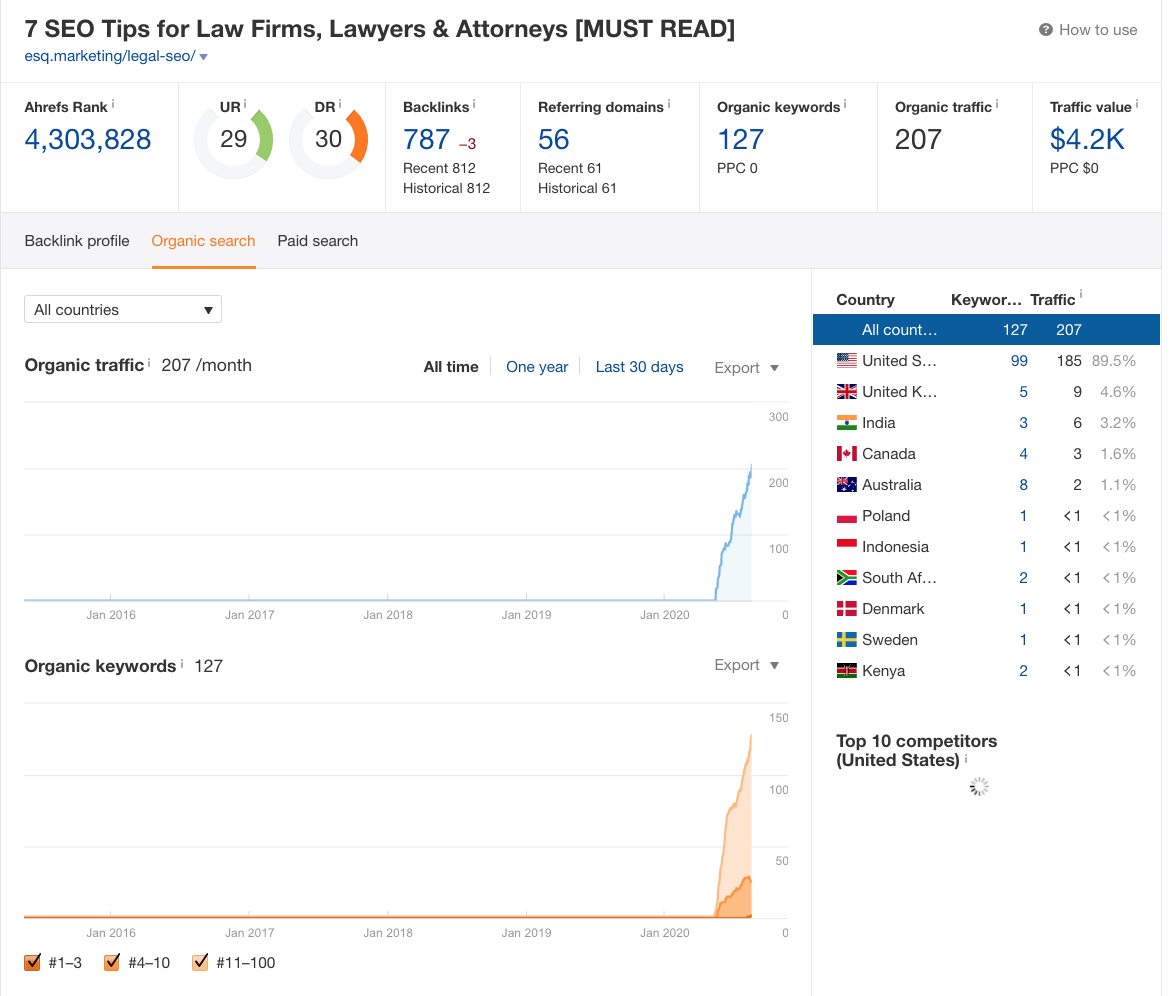
The post has now surpassed original rankings, bringing in a considerable ROI for the company.
Implementing this strategy
If you have a budget allocated towards SEO and link building, I recommend investing in this hack to earn faster and more effective results. While HTML links build trust signals, they’re unpredictable and don’t represent long-lasting value. Purchasing domains or web pages with 301 redirects will not only permanently transfer link equity, but also increases your overall authority and ranking power.
Digital & Social Articles on Business 2 Community
(65)
Report Post


